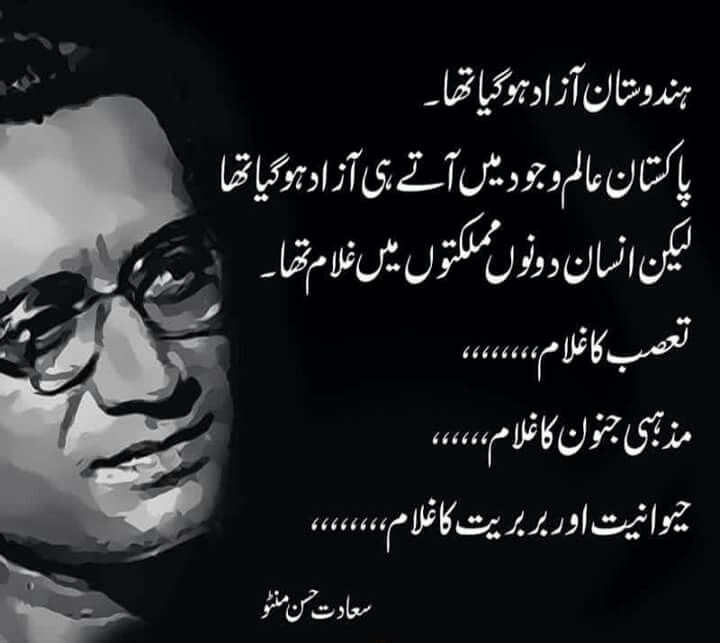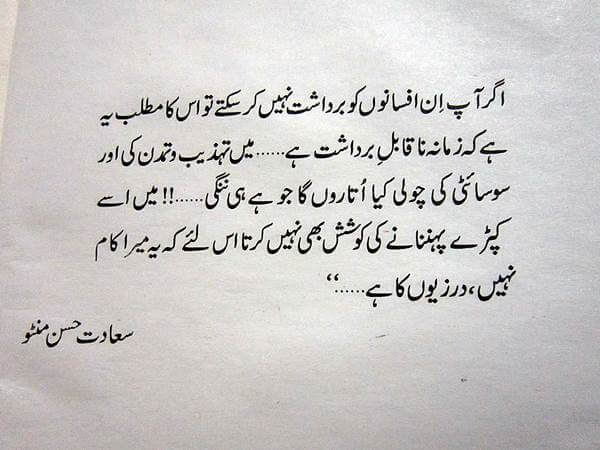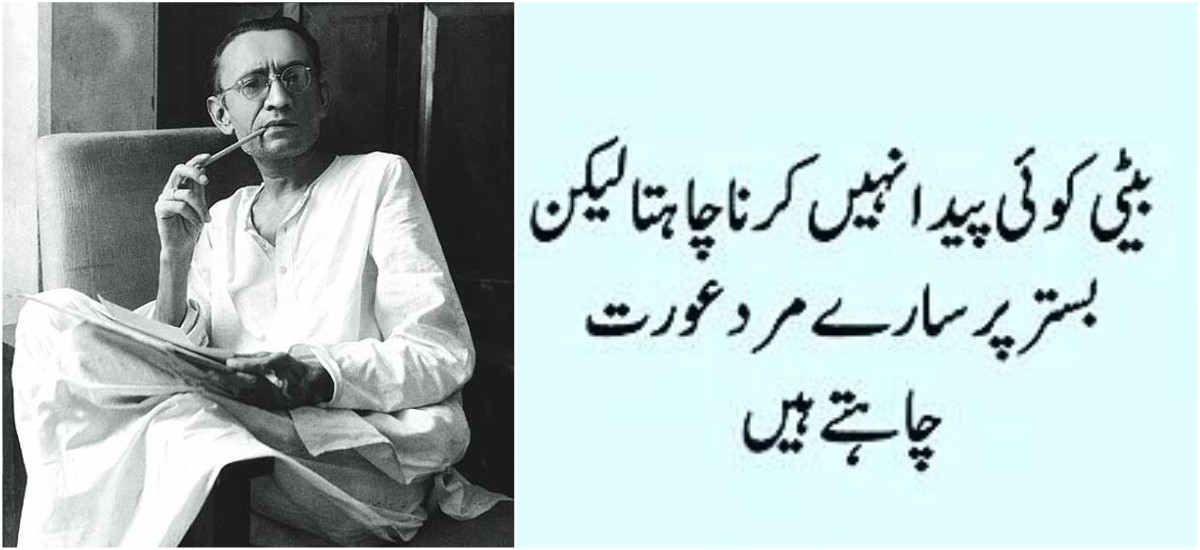Disclaimer*: The articles shared under 'Your Voice' section are sent to us by contributors and we neither confirm nor deny the authenticity of any facts stated below. Parhlo will not be liable for any false, inaccurate, inappropriate or incomplete information presented on the website. Read our disclaimer.
It is possible that Saadat Manto dies, but Manto remain alive
A quote that showed a reflection of optimism becomes a truth of our century. A man who was inspired by writers like Victor Hugo, Oscar Wilde, Chekhov and Gorky, his fierce writing will always be a factor of his existence which will remain consider as an enigma in our society where the veracity of a fact conceal and accuse of being salacious for annihilating the cultural norms.
[adinserter block=”3″]
Kali Shalwar, Kisan Kanya, Badnaam, Apni Nagariya, Shikari, Manto and the upcoming Indian version of Manto bio-pic In defense of Freedom are some of the cinematic poetry of Manto realistic work. Rebellious, condor, obscene, fierce and many more, names that were associated with the literary work of Manto substantially exposing those can’t segments of the sub-content that were ignored to address the truth which was screaming, raging and molested from roses and tangerines filled kotha’s too dark solitary confinement and lonely streets of sub-content.

Source: Pinterest
Manto’s pen that scorching and slashing the depiction of truth is not for the timid or faint-hearted individuals. You can call him rebellious, secular or can accuse him of his obscene literature but one cannot deny that Manto was not just one of the great Indo-Pakistani writers but also the master of the art of short story writing.
Yeh Muashra Aik Aurat ko Kotha Chalane ki ijazat Tou Day Deta Hai Magar Tanga Chalanay Ki Nahe – Saadat Hasan Manto
Manto, who was born in a traditional middle-class Kashmiri family, settled in Amritsar and moved to Lahore from Bombay after the historic Indo-Pak partition by leaving a literary treasure of more than 2000 stories and a series of essays and radio plays. Manto’s stories are one of the finest masterpieces of Urdu literature that portray the historical Indo-Pak tale of human misery and distress.
It was a tragedy that some of his stories like “Thanda Ghost”, “Boo”, “Dhuan”, “Kali Shalwar” and “Uppar, Niche aur Darmyan” was accused of being excessive obscene, due to these charges Manto faced court many times before and after partition but never convicted.
If you find my stories dirty, the society you are living in is dirty. With my stories, I only expose the truth – Saadat Hasan Manto

Source: Ravi Magazine
In Manto’s writing one can see a clear picture of hideous blots on our society, for example in one of his masterpiece “Khul Do” his projection of showing cross-border violence can be shown effortlessly by the presence of his characters as he gave liberty to his characters to speak for themselves which can easily grab the attention of a reader towards the hunting and lechery elements of the society. “Toba Tek Singh” is another literary gem of Manto’s writing which reflects the throes and pangs of cataclysmic changes during Indo-Pak partition.
[adinserter block=”12″]
Hindustan had become free. Pakistan had become independent soon after its inception but man was still a slave in both these countries — the slave of prejudice … slave of religious fanaticism … slave of barbarity and inhumanity. -Saadat Hasan Manto
After the Indo-Pak participation, Manto faced many challenges like mentally, financially and professionally, due to the fact of being suppressed to project the reality through his writing by the antagonistic elements of the society, which led him towards the excessive habit of drinking and depression that claimed his life in 1955 at the age of 42.
Wo ab bhi manu miti ke niche ke who bara afsana nigar hai ya khuda







